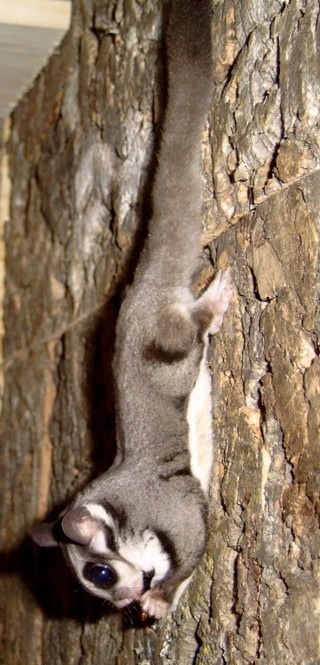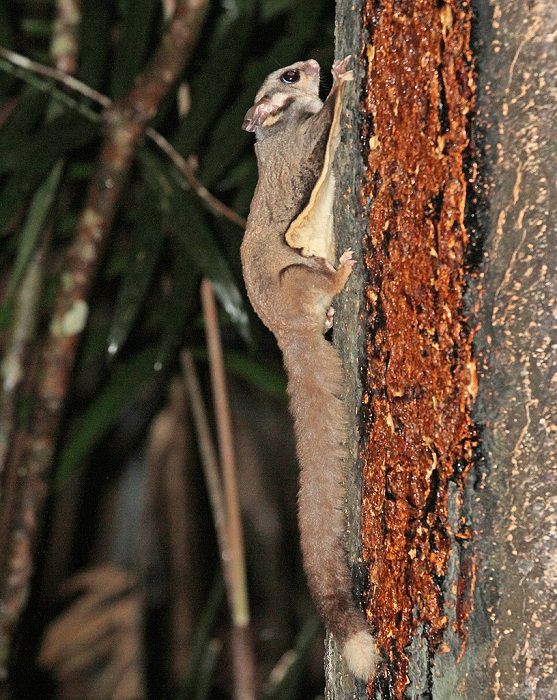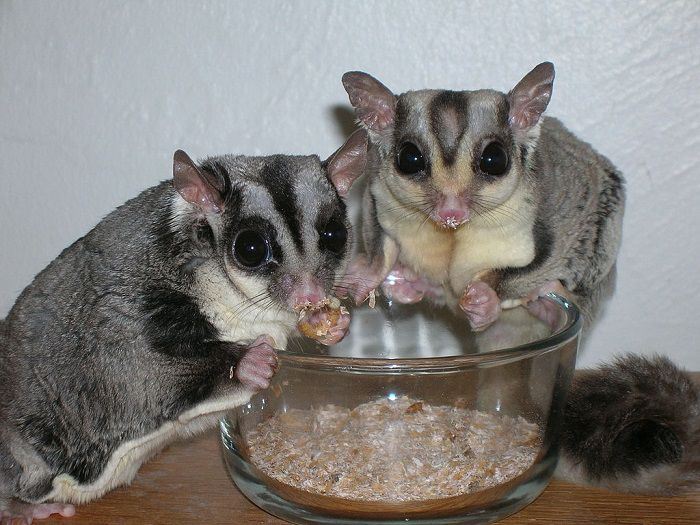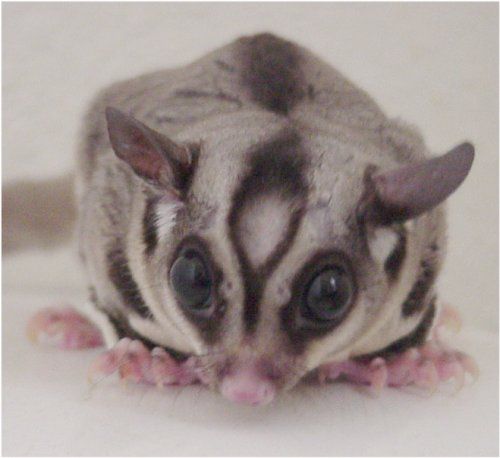Table of Contents
Experienced sugar glider owners will be aware of the many sounds their pets make, but new owners will often be surprised to hear their cute and cuddly pet making what sounds to them like a hissing sound. Although this hissing sound might appear to you to signal aggression, the reality is that it is more commonly associated with the sound these creatures make when they groom themselves.
What Causes the Hissing Sound?
Hissing in a sugar glider is often the result of it spitting into its hands and then using these to wash all over its body. Some people describe the sound as a hissing or a soft sneezing as the sugar glider spits and grooms.
and grooms.
There may be other causes of hissing in sugar gliders though. Sometimes they will use this sound to signal their annoyance with one another. If you have more than one sugar glider then, you might notice one of them hissing at another. This will probably be more noticeable when you initially introduce sugar gliders to each other.
though. Sometimes they will use this sound to signal their annoyance with one another. If you have more than one sugar glider then, you might notice one of them hissing at another. This will probably be more noticeable when you initially introduce sugar gliders to each other.
A hissing sound could also occur when there is a problem. For example, when constipated or when having trouble peeing, your sugar glider might emit a soft hissing sound in response.

Sugar Glider Upside Down 
Sugar Glider on Tree
Should You Be Concerned About Hissing?
As hissing is a sound that can signify different things, it is important to be aware of your pet’s behaviors and be alert to any changes to its usual routine. If hissing is a sound that your glider makes regularly, then it is likely that this is just the sound it makes as it grooms itself.
Remember though, not all hissing sounds will be the same. Sometimes it will be a short quick hissing sound whereas at other times it might be longer and louder. If you notice a change in the sound of the hiss, look out for other signs that something is amiss.
A hissing sound that accompanies a change in stool appearance could mean the animal is constipated. If you are worried that your sugar glider is struggling to pass stools, ensure that it is getting enough fruit and water. Foods and drinks such as apple juice, cranberry juice, prune juice, and canned pumpkin might help.
If the problem persists, talk to a vet, who may be able to recommend a stool softener.

Conclusion
Hissing in a sugar glider is rarely anything to be worried about. Most of the time it is the sound that is made when the sugar glider is grooming itself by spitting into its hands. However, if hissing is accompanied by a distended stomach and hard dry stools, or indeed a lack of stools, it could be that your pet is constipated.
If your sugar glider is not taking enough fruit and water, constipation can, and often does, occur. Try offering foods known to help such as fruit juices and canned pumpkin. If this doesn’t work, contact your exotic vet as soon as possible.
Photo Credits:
- Featured Image (Sugar Glider): Dawson
 – CC BY-SA 2.5
– CC BY-SA 2.5
- Sugar Glider Upside Down: Anke Meyring
 – CC BY-SA 2.5
– CC BY-SA 2.5
- Sugar Gliders Eating Mealworms: OberonNightSeer
 – CC BY-SA 3.0
– CC BY-SA 3.0
- Sugar Glider on Tree: Joseph C Boone
 – CC BY-SA 4.0
– CC BY-SA 4.0


